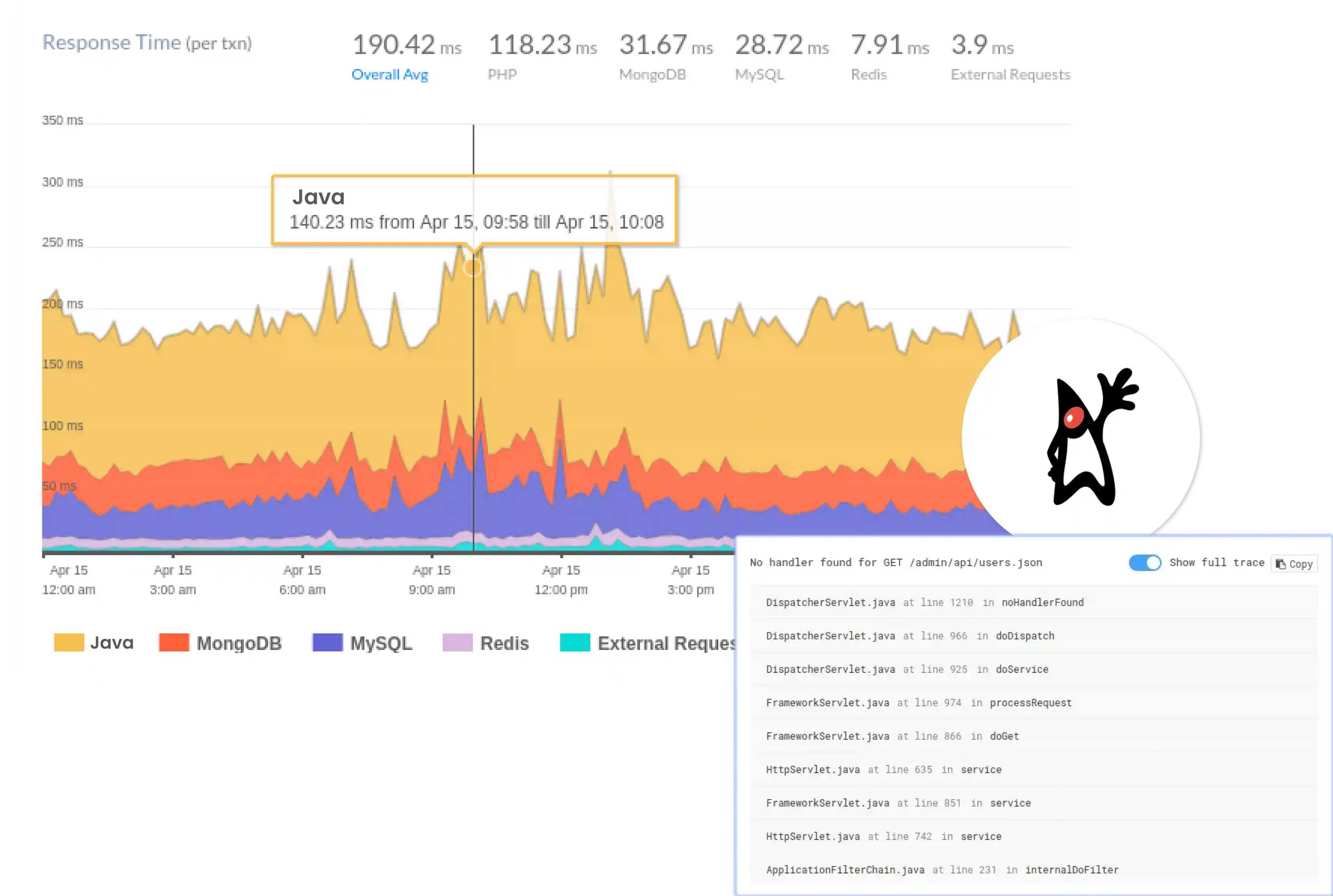ASyncHTTPClient Monitoring
ASyncHTTPClient monitoring with Atatus Java Agent empowers you to gain deep visibility into asynchronous HTTP requests, uncover performance bottlenecks, and optimize error handling. Ensure faster, more reliable API integrations with real-time insights into every async call.
Sign Up for Free








 +1-760-465-2330
+1-760-465-2330


